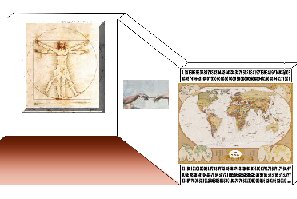
Forgetfulness of being and modernity
We have seen that Thomas Aquinas discerned, but also hierarchy upon the question of being,
also hierarchy upon the question of being,
We know that every philosophy and Western life had influence of classical philosophy, and it comes from Aristotle and Plato, essentially, but a break would happen at the end of the Middle Ages, “subordinating the ‘uncommon’ knowledge that ‘subsistens ipsum’ last weekend of metaphysics, because absolutely first cause not only the order of efficiency and purpose, but also and above all in radical order of existence.” (pp. 20)
Thus, according to Plaintiff Rory F. Blanc we’re reading the Introduction to ontology, “favored the existing concrete entity as the object of metaphysics, highlighting the unique and even priority of existence as an act towards the formal plan of the essence,” while another philosopher also scholastic Duns Scotus, “preferred, such as Avicenna, the nominal meaning of being more universal than others participial, standing in the abstract metaphysics of possibility while studying the essence “(p. 20)
The author explains that this philosophy was transmitted by Francisco Suarez in his “Disputaciones Metaphysicae” 1957, which organizes the medieval scholasticism.
This is important to understand the possible logically conceived as non-contradiction, would enable the modern philosophy, especially concernada with the problem of knowledge and science, important changes in the concept of ontology, which would prepare the largely gnoseological education same, made by Kant in the eighteenth century “(pp. 21), in my view the most important statement of the author.
These changes were even terminology because “had called first philosophy or metaphysics for assignments Philosophia entis as Maignan, Ontosophia with Clauber” while Christian Wolff, disciple of Leibniz, in his study Philosofia press sive Ontology, “reflects a emergence of a new conception of first philosophy. ” (pp. 21)
Also these conceptions was present in Baumgarten and Crusius: “ara “For the first, metaphysics studies the necessary truths of reason, for the second it is … ” (pp. 21), the author opens own quotes to quote it: “scientia primorum in human principiorum cognitione “.
So “getting through Baumgarten, the Wolfian systematic, Kant, by denying the intellectual intuition, to see would be forced to remodel that deep, gnoseological accomplished the reduction of ontology before only sketched.” (pp. 22).
It was thus that Kant has to be the “in itself” (an sich) of unseen things, restricting the ontology “subjective and phenomenal scope of human knowledge” and establishing the principles of pure reason and “ended up in the anthropological context of finite meet , preventing metaphysics “(pp. 23) and preparing the field for German Idealism.









